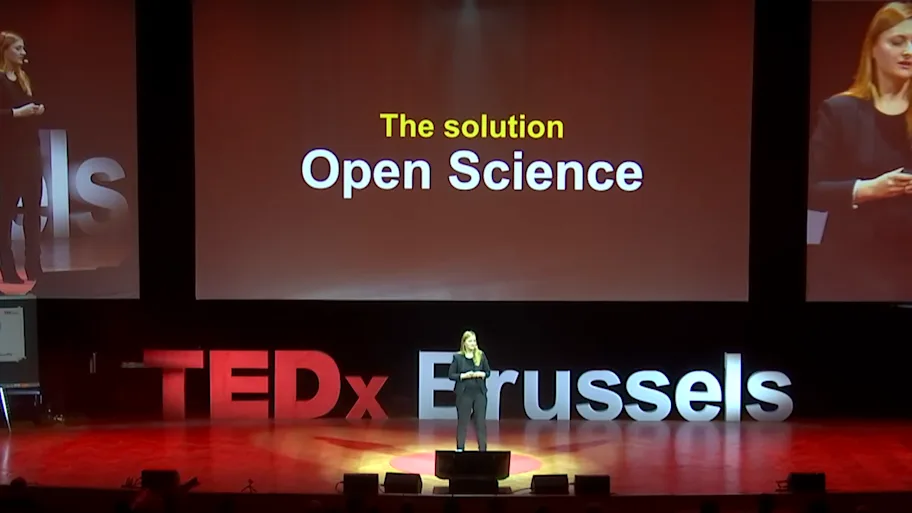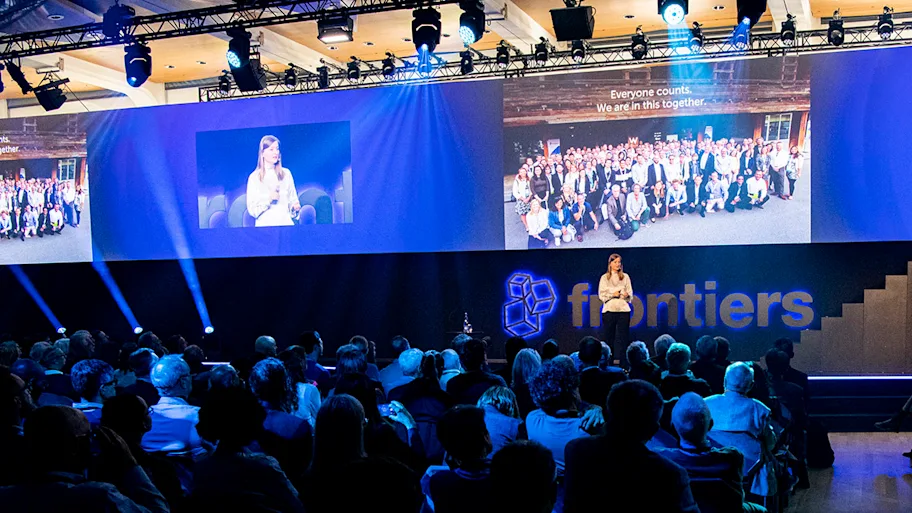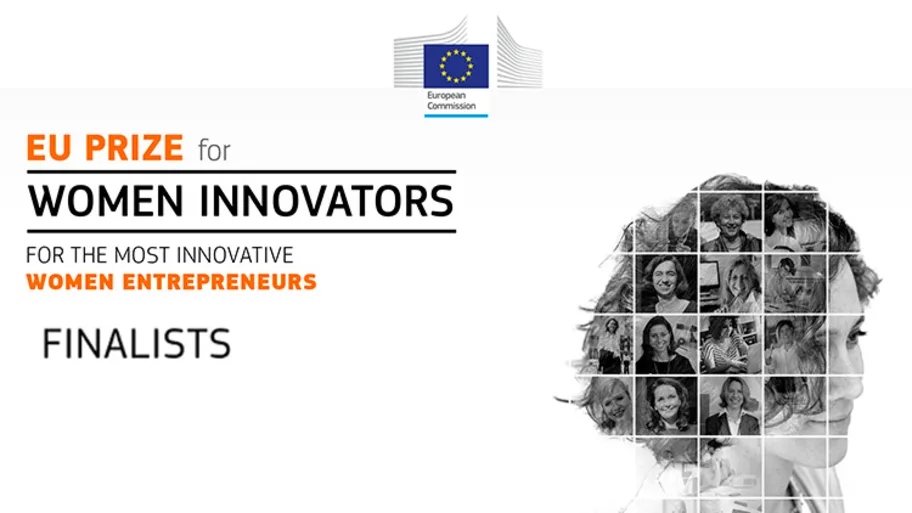
- Science news
- Frontiers news
- Frontiers at Web Summit 2017: Openness key for trust in science
Frontiers at Web Summit 2017: Openness key for trust in science

Image: Web Summit 2017
With populism at the forefront of world politics and climate skepticism challenging a global climate consensus, European Commissioner for Research, Science and Innovation Carlos Moedas, Frontiers’ CEO Dr Kamila Markram, Portugal’s Minister of Education Dr Tiago Brandão Rodrigues, Nobel Prize Winner Dr Robert Curl and The Guardian’s political journalist Sabrina Siddiqui, discussed how academics, policymakers and politicians can restore faith in “experts” on a panel at the Web Summit 2017.
››Watch the full panel session
The Web Summit is one of the world’s largest and most influential tech conferences. Held on November 6-9 in Lisbon, Portugal, the 2017 edition attracted more than 60,000 attendees and featured some 1,200 high-profile speakers — including Al Gore, Microsoft President Brad Smith and UN Secretary-General António Guterres.
Dr Markram emphasized the key role of open science in enhancing public trust in scientific expertise.
“To increase trust in science we need to get the basics right, we first need open and free access to our science,” she said. “Every year, the world spends US$2 trillion on research and publishes approximately 2.5 million research papers. Unfortunately, ninety percent of these papers are not openly accessible as they are locked behind expensive pay-walls — where they are nearly invisible to journalists, patients, citizens, business and policymakers. Today it is more urgent than ever to open this space up.”
She pointed out that Europe, under Commissioner Moedas’ directive, is leading the transition to Open Science, ahead of the US and China.
Commissioner Moedas outlined three priority actions to restore and ensure trust in science: explain the process of science better; create places of trust for knowledge where citizens can check the sources and access the data themselves; and toughen-up on research integrity. Moedas restated that the European Commission is very proud to lead the Open Science transition, in which open access to scientific articles and data are fundamental.
The Commissioner also outlined his vision to create moon-shot missions that capture the public’s imagination. “We lost the connection with people,” he explained. In his view, people need to understand the purpose of scientific research and be passionate about science, even if they don’t read all the research or understand all the details.
“When you spend billions of Euros of public money to fund academic research you have a responsibility to ensure that citizens can understand and reap the benefits of this investment.”
For Minister Brandão Rodrigues, creating bridges — and destroying current walls — between researchers and politicians is especially important. “Politicians need to understand that it’s not just with emotions and feelings that they are going to survive,” he said.
Brandão Rodrigues also raised the point that the huge amount of knowledge and data now available can either lead to true progress in science and political decision-making, or chaos. “Humankind never knew as much as we know now,” he said. At the same time, we never had so many people expressing their rational, and also their emotional, thoughts — or so many people reading this content.
In a similar vein, Dr Curl raised the question of what constitutes an “expert”, and warned about people who claim to be an expert in areas outside of their field of expertise. He cited the famous example of Frederick Seitz, President of the US National Academies of Science in the 1960s, who early in his career denied the link between tobacco and health, and then also expressed denial about climate change.
Curl also stressed the importance, and difficulty, of getting the scientifically sound and certified information — such as that provided by the US National Academies of Science — to the public.
One way to bring science closer to the public is by engaging children in scientific research. “If an 8-year old understands a scientific concept, so will her grandmother,” suggested Markram. Brandão Rodrigues expanded along these lines, encouraging further actions to increase the scientific and social media literacy of young generations so that they can develop and exercise a critical mind when confronted with scientific information.
The panel concluded that scientific expertise was needed even more than ever in the face of fake news. Moedas declared that Europe must continue to lead scientific knowledge creation and encouraged researchers from all over the world to join this endeavor.
“Unleashing science through open access is essential, as this will greatly accelerate innovation, boost economies and build the foundation for trust,” reiterated Markram.






